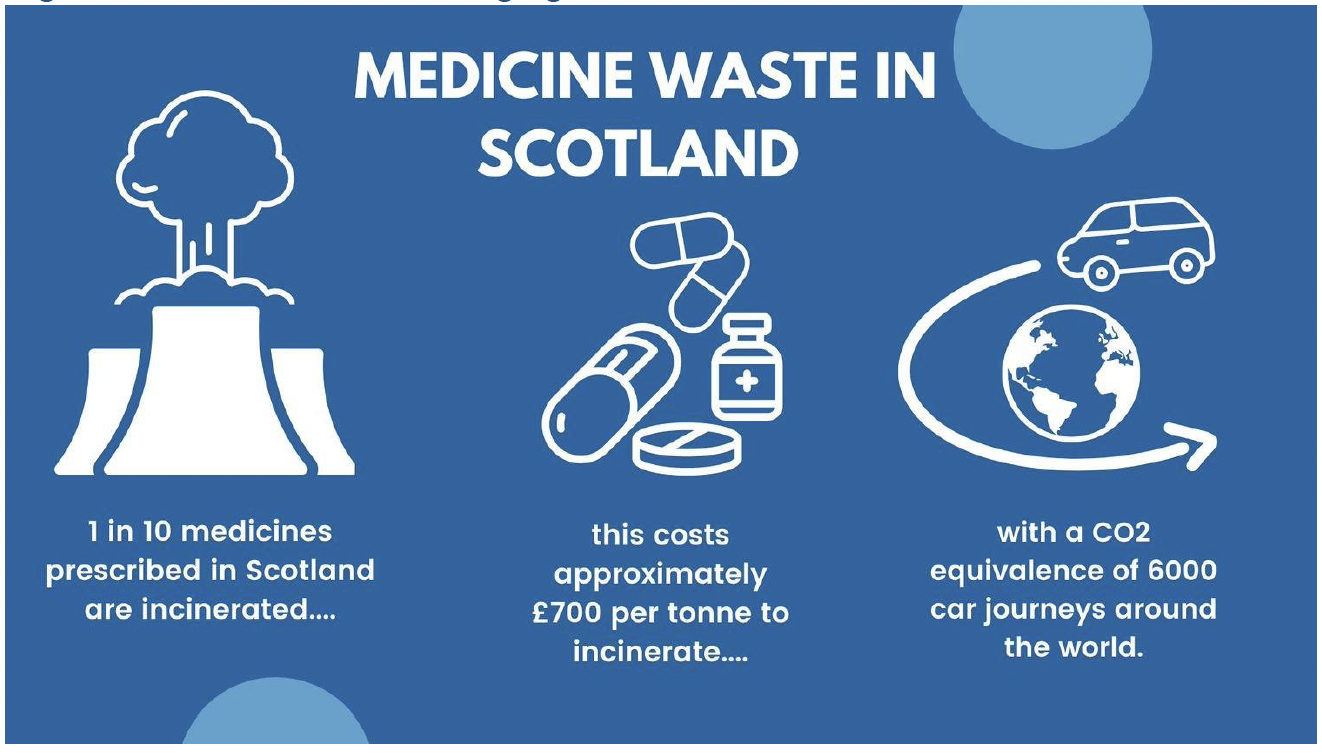Quality prescribing for respiratory illness 2024 to 2027 - draft guidance: consultation
We are consulting on this draft guide which aims to optimise treatment outcomes in the management of respiratory illness. Produced by Scottish Government, NHS Scotland and Experts by Experience, it builds on the 2018 to 2021 strategy. It promotes person-centred care, the 7-Steps process for medicine reviews and shared decision-making.
4. Polypharmacy
Person-centred respiratory prescribing
Medication is by far the most common form of medical intervention for many acute and chronic conditions with around 280,000 items prescribed every day in Scotland, around 21,000 items for respiratory medicines. 10 The term polypharmacy means “many medications” and is defined to be present when a patient takes two or more medications. Drug therapy can be highly effective in preventing disease or slowing disease progression, with guidelines for single diseases recommending the use of a variety of evidence-based drug treatments. However, there is often a mismatch between prescribing guidelines for specific medical conditions and the range of clinical complexity found in individuals. It is important to note that polypharmacy is not necessarily a bad thing, it can be both rational and required.
It is recommended that patients are reviewed using the 7-Steps process outlined in the Scottish Government’s Polypharmacy guidance8 with accredited Polypharmacy training available on TURAS for prescribers (three points of external CPD by Royal College of Physicians, United Kingdom). The training equips healthcare professionals (including doctors, nurses and pharmacists) to undertake comprehensive person-centred medicines reviews. The training can be accessed at NHS Education for Scotland on TURAS learn. Find more information on the iSIMPATHY website.
Environmental impact of polypharmacy and healthcare
Over-prescribing is commonplace, accounting for at least 10% of all prescribed medications. It is estimated that up to 11% of unplanned hospital admissions are attributed to harm from medicines. 5 About half of these admissions are deemed to be preventable, through methods such as effective medicine review, following the 7-Steps polypharmacy review process.
The healthcare industry is increasingly asked to account for the negative environmental impact generated through providing medical care. In Scotland, every 10 days a 10-tonne truck of medicines waste (returned to community and hospital pharmacies) is transported for incineration. These are the associated costs for incineration; travel costs and the environment impact (see Figure 3 below) in addition to the direct costs of the unused medication.
Reduction of medicines waste can be achievedbyensuringappropriate prescribingand initiation of medicines,regularperson-centred medication reviews and deprescribing where appropriate.
Reducing waste from medicines has a double carbon benefit by
- reducing upstream emissions e.g. in distribution
- downstream emissions,withfewer medicines to be disposed of
Medicines that are disposed of in general waste, poured down the sink or flushed down the toilet, increase the risk of environmental harm. Any remaining propellant gas in metered dose inhalers can be safely destroyed by incineration, which avoids it leaking into the atmosphere. Residues from medicines which are unused, not properly disposed of, or from those that pass through the body, can be found in water, soil and sludge and in organisms at all stages of their lifecycles. Further information is available using the SEPA data visualisation tool for Pharmaceuticals in the Water Environment.
Unused or unwanted medicines should be returned to community pharmacy for safe disposal or recycling where available.

Contact
Email: EPandT@gov.scot
There is a problem
Thanks for your feedback